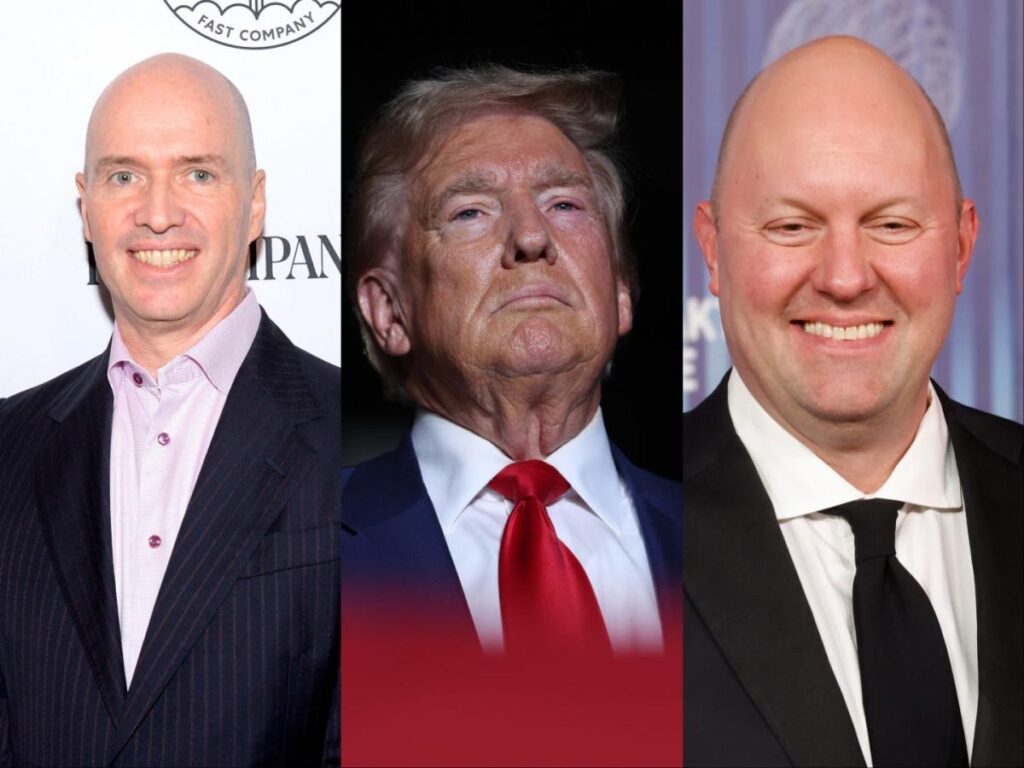Recent filings from the Federal Election Commission (FEC) unveil significant financial contributions to the pro-Trump super PAC “Right for America,” attracting funding from several high-profile business figures, particularly venture capitalists Marc Andreessen and Ben Horowitz. Each of these influential investors contributed $2.5 million, indicating a notable shift among certain Silicon Valley elites who have previously supported Democratic candidates. The PAC’s stated mission is to secure Donald Trump’s success in the upcoming 2024 presidential election. Their donations highlight an evolving political landscape within tech circles, emphasizing a fracture among traditional party loyalties.
Marc Andreessen and Ben Horowitz, both well-known figures in venture capital, publicly declared their support for Trump in July during a podcast episode of “The Ben & Marc Show.” Andreessen articulated his frustration with President Biden’s proposed taxation on unrealized capital gains, deeming it a deterrent to entrepreneurial innovation. He expressed concern that such fiscal policies discourage talented individuals from pursuing startup ventures. Horowitz also articulated his enthusiasm for Trump, noting discussions during a dinner with him about significant topics like artificial intelligence and cryptocurrency. This newfound allegiance to Trump marks a stark contrast to their past support for Democratic candidates.
In addition to Andreessen and Horowitz, other notable contributors to “Right for America” include Isaac Perlmutter, the former chairperson of Marvel Entertainment, and Marc Rowan, CEO of Apollo Global Management. Both Perlmutter and his wife donated approximately $2.45 million each to the PAC, while Rowan’s contribution amounted to $1 million. These donations signal a broader trend among certain high-profile investors and executives within the tech industry who are realigning their political support towards the Republican Party and President Trump. The infusion of funds from these donors highlights the PAC’s capacity to mobilize significant resources for its advocacy.
The emerging trend of tech leaders shifting their political affiliations towards pro-Trump support is not isolated to Andreessen and Horowitz. Tesla CEO Elon Musk has also been vocal in his support for the former president, particularly following a failed assassination attempt in July. Musk has since formed his own super PAC, dubbed “America PAC,” which aims to bolster Trump’s presidential campaign efforts. This PAC has garnered strategic importance, reportedly spending more than $100 million to influence the upcoming electoral race. The dynamics surrounding these financial commitments underscore a significant transformation in the political affiliations of those who wield considerable influence in the technology sector.
Historically, figures like Andreessen were associated with backing Democratic candidates, notably Barack Obama in 2008 and Hillary Clinton in 2016. The recent shifts in support toward Trump indicate a potential backlash against current Democratic policies, particularly those relating to taxation and regulation in the tech industry. This trend could reflect broader economic concerns among business leaders, particularly regarding policies perceived to hinder innovation and growth opportunities in startup culture. As key members of Silicon Valley reassess their political alignments, their financial commitments echo deeper strategic imperatives in navigating the complex relationship between technology and governance.
The response from representatives of Andreessen Horowitz and the “Right for America” PAC remains pending, showcasing an unwillingness or inability to comment on the implications of these contributions at this time. As 2024 approaches, the political contributions from these high-profile business leaders could significantly impact the electoral landscape, further highlighting the intersecting interests of tech entrepreneurship and political advocacy. The evolving relationship between major donors and political candidates, particularly in the context of Trump’s campaign, could redefine traditional party loyalties and reshape voter mobilization strategies leading into the next presidential election.

